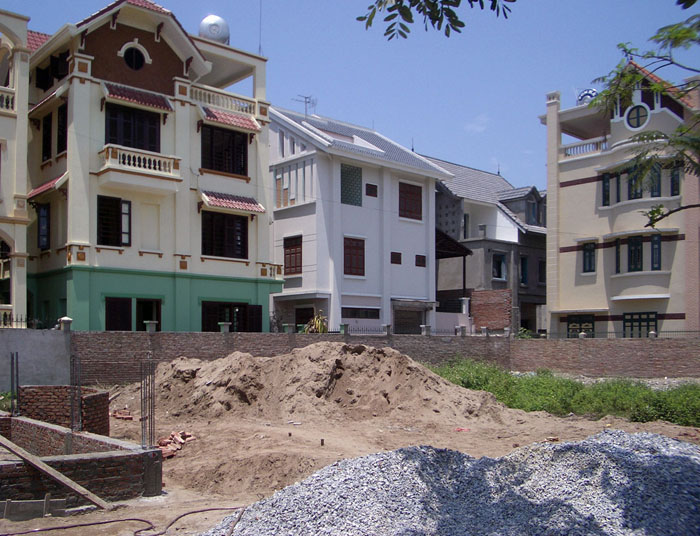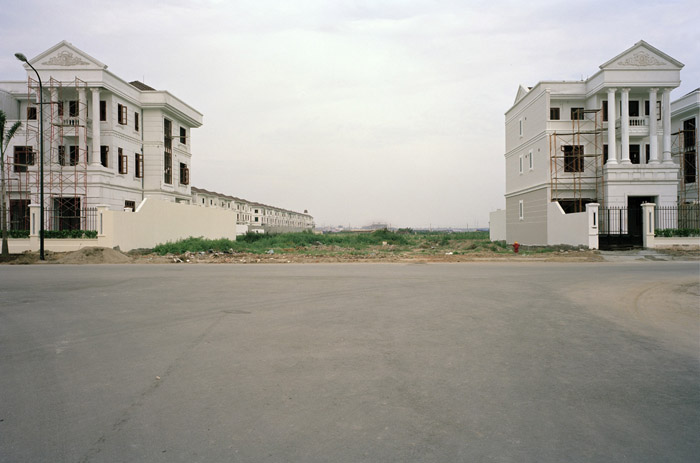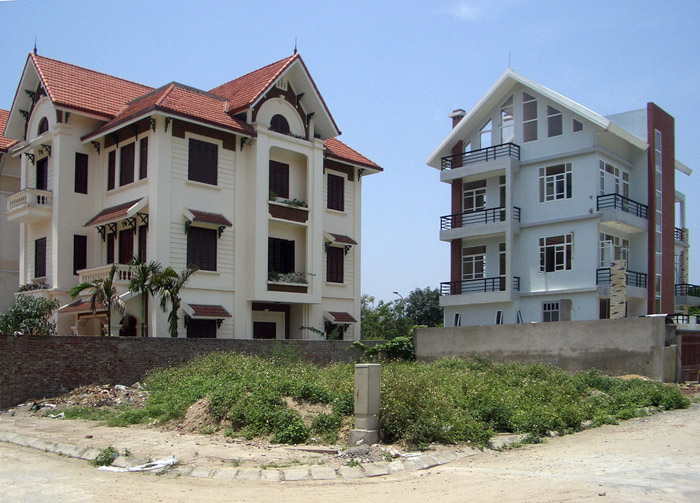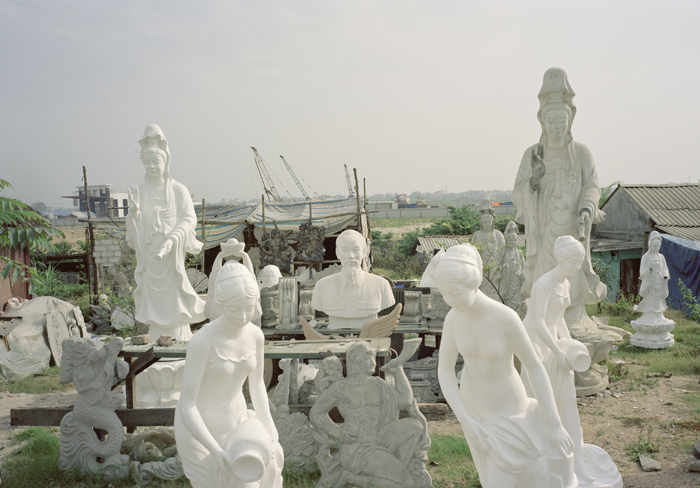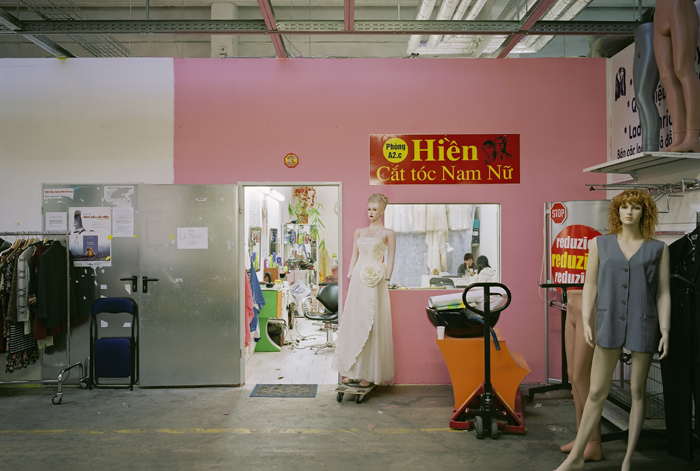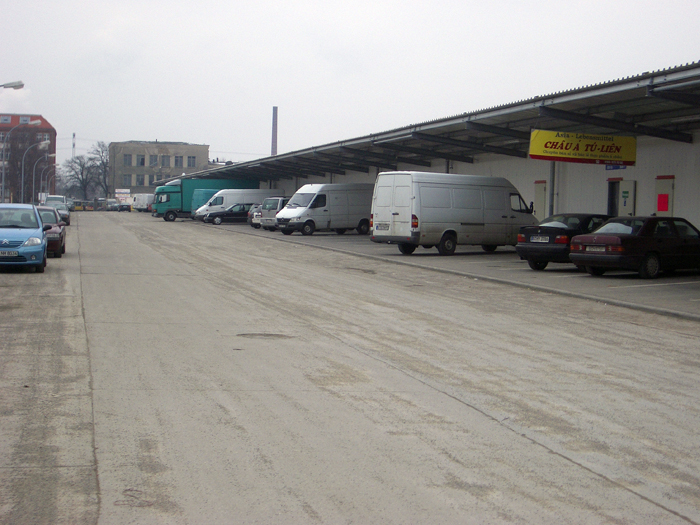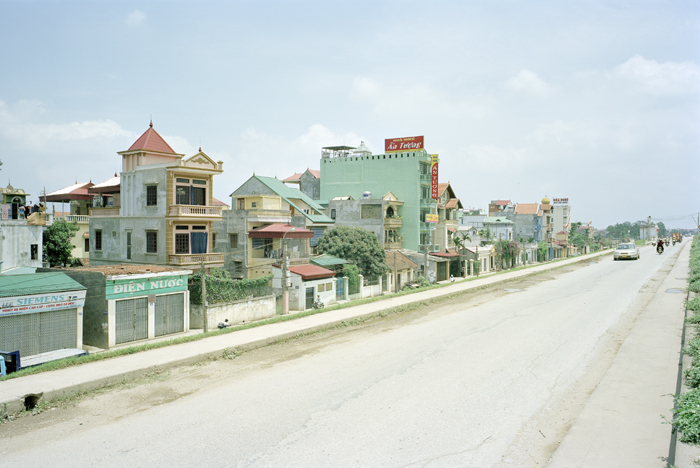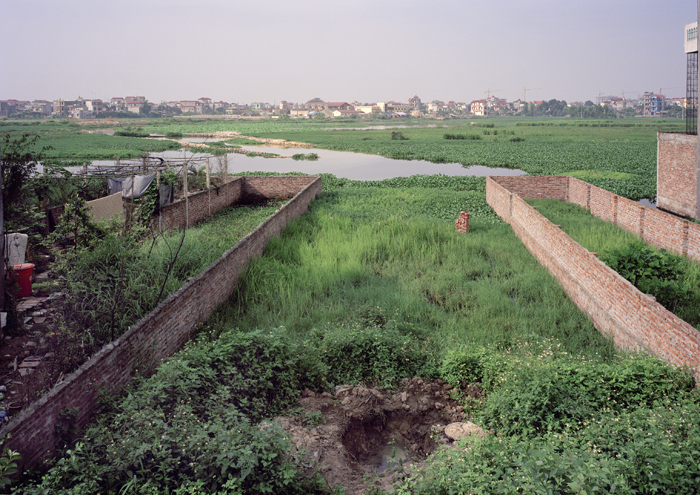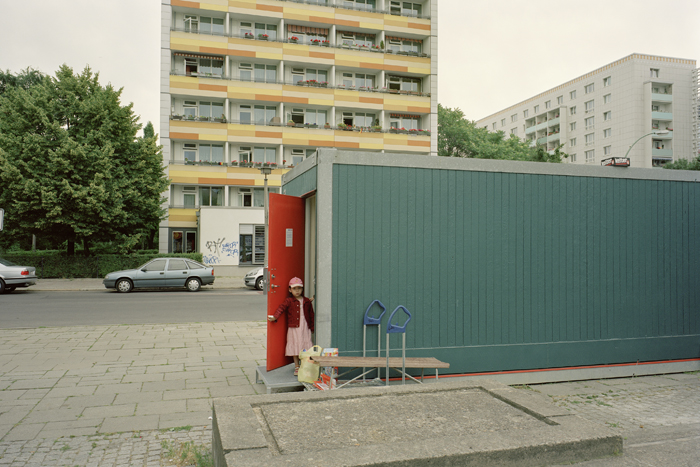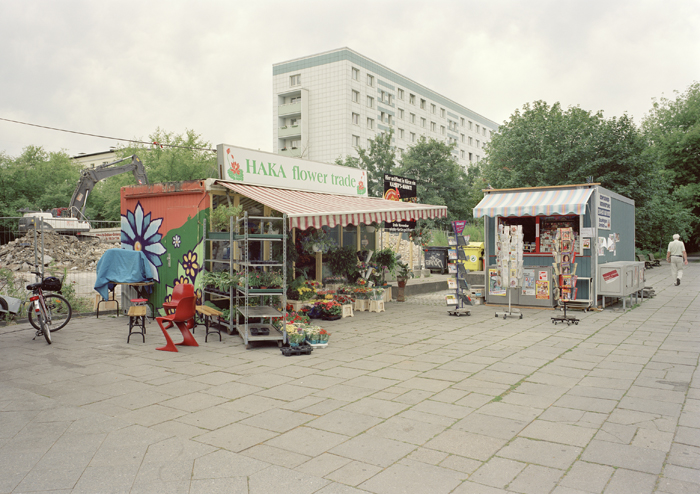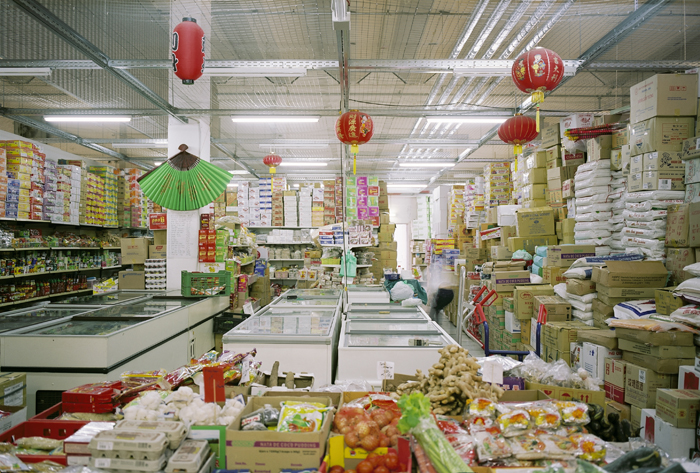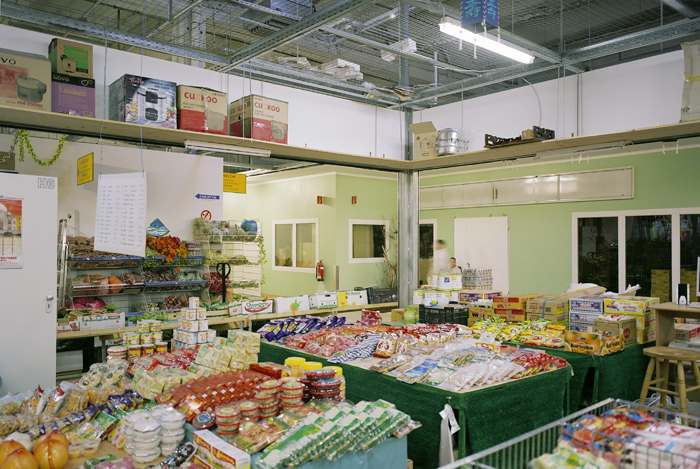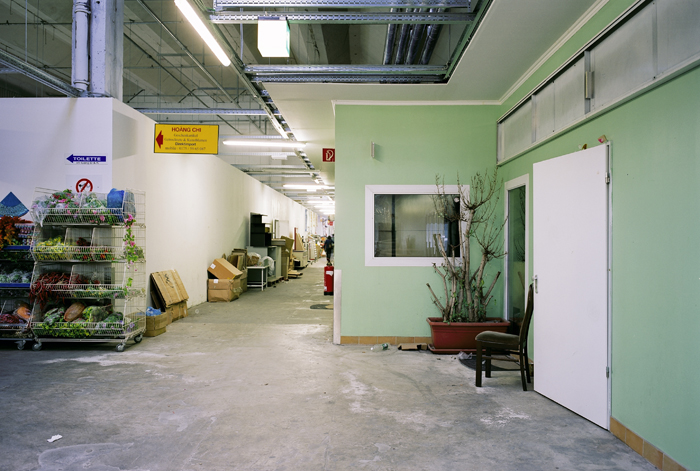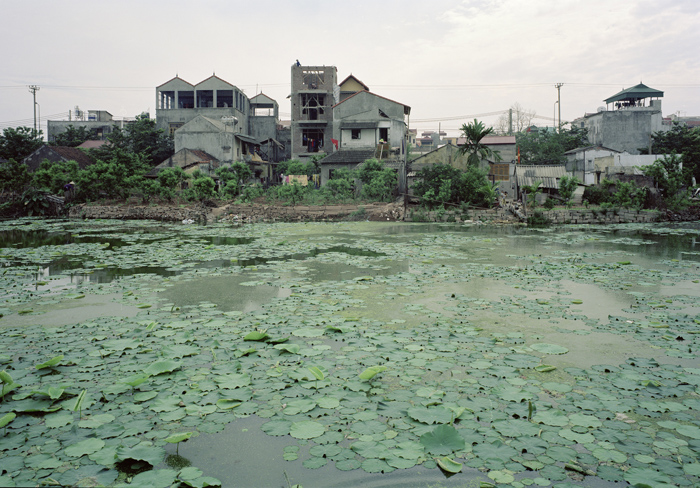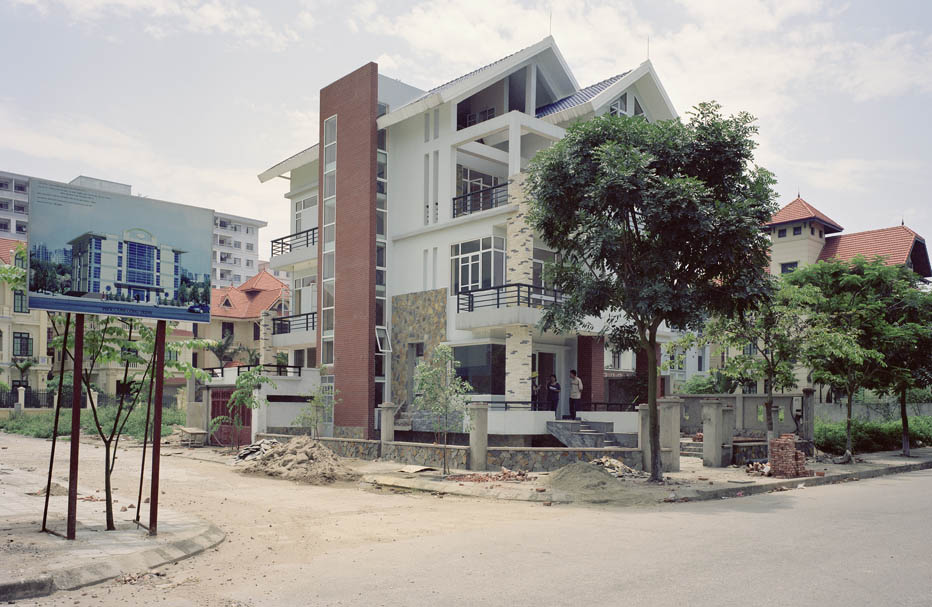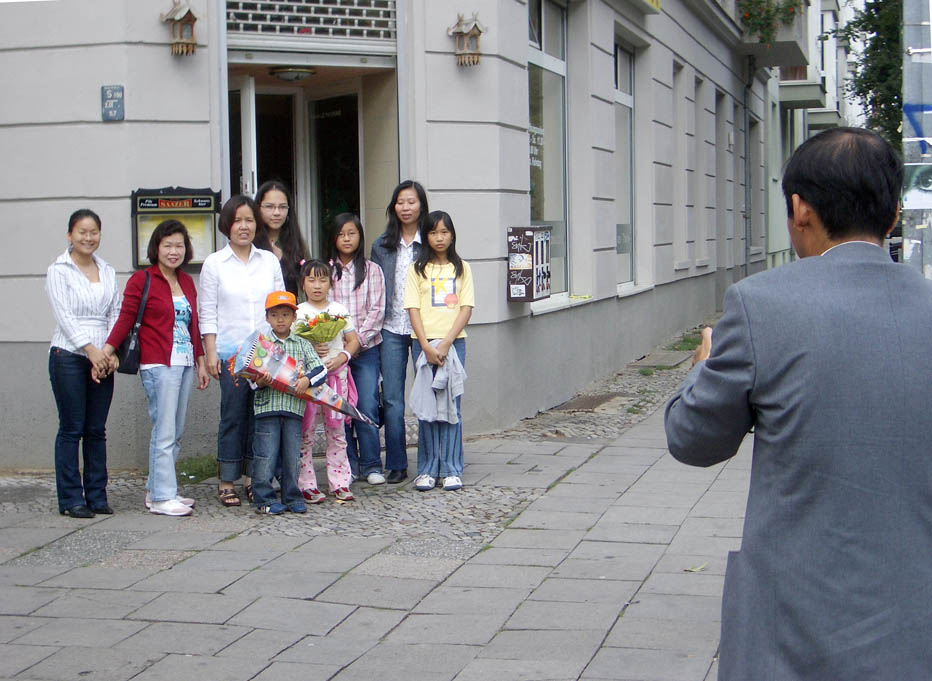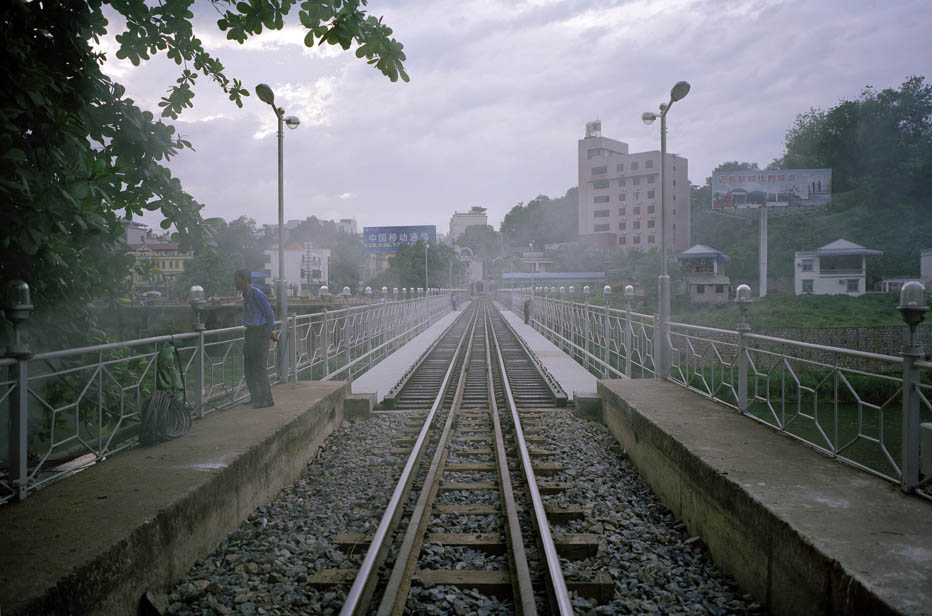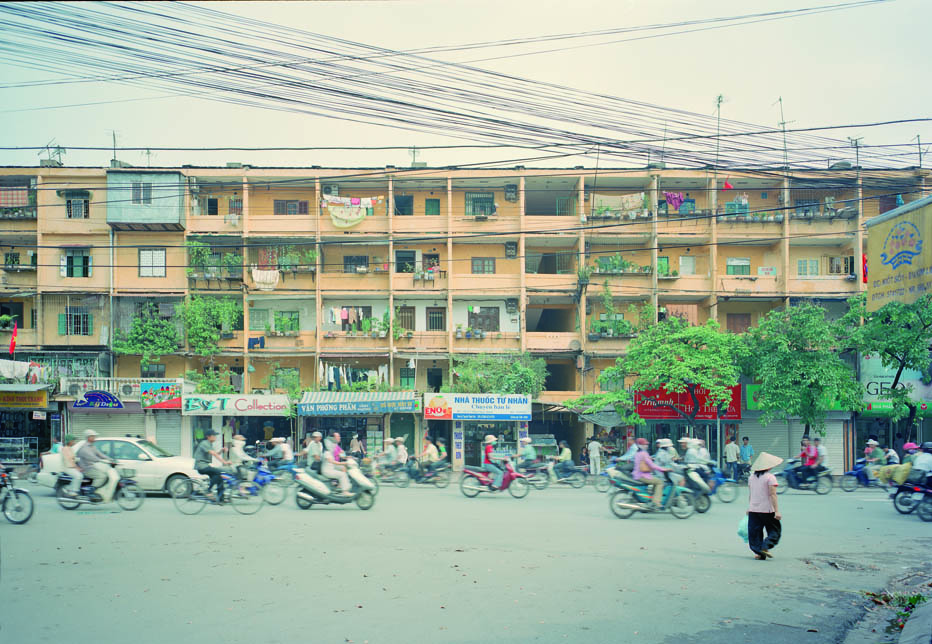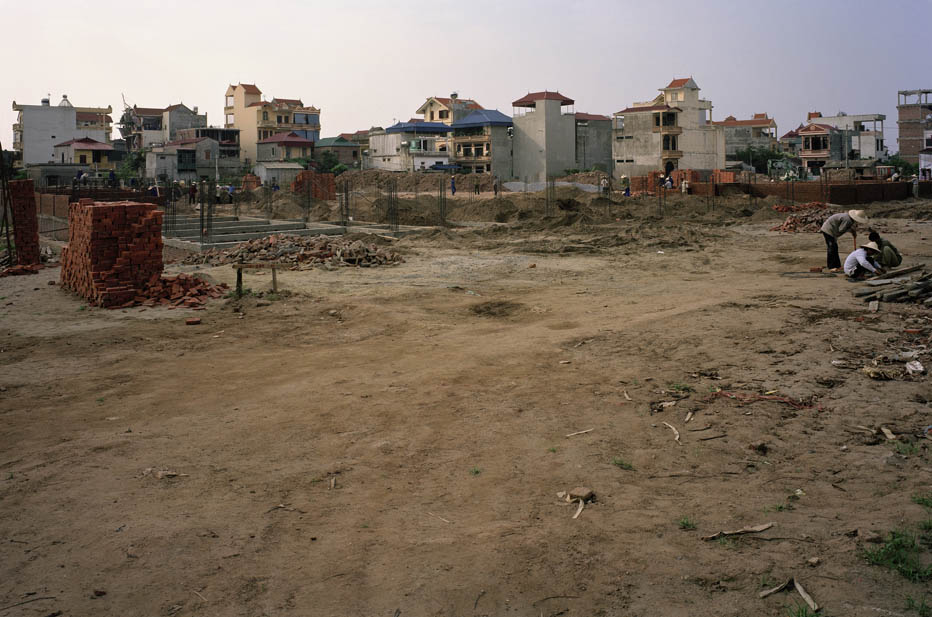Loi Chao Tu Hanoi (2005 – 2007)
„Loi Chao Tu Hanoi – Greetings from Hanoi“ is an artistic approach to the dreams and life plans of Vietnamese people betwen Hanoi and Berlin, their everyday lives and their difficulties. As a result of the research, video portraits but also a serie of photographies have been created.They show a multifaceted and a very precise picture of spaces. „Loi Chao Tu Hanoi – Greetings from Hanoi“ expands the view of German society to include a perspective from two peripheries: From the social fringe perspective of Vietnamese migrants in Germany and from their relatives in Vietnam.
She really wanted to name her Imbiss, located in the Friedrichshain section of Berlin, “Vietnamesisch-Deutsche-Freundschaft,” or Vietnamese-German Friendship. A tribute to her feeling so at home in Germany
Vietnamese-German Friendship (Dr. Joana Breidenbach) – Excerpt from „Home-Sweet-City“, 2007
A tribute to her feeling so at home in Germany and the fact that her family has lived here now for almost 20 years. But then she thought her place too small for such a name and her German too rough anyway, so she decided to call it “Asia-Euro Imbiss.” Imbiss means a place to get “a bite to eat”; “Asia-Euro” refers to the menu, which contains a lively mix of Asian and European, “everything Germans like to eat”: spring rolls, sweet and sour soup, and, of course, the everpopular Chinapfanne, or stir-fry platter. There are over 600 Asian take-out restaurants in Berlin, not counting scads of sushi-bars and sit-down places, from Thai to Chinese and pan-Asian. An El Dorado of culinary diversity? Not quite. While Germans often assume that Chinese cooks are frying their Chinapfannen and Japanese sushi chefs cut their maguro maki, in most cases their food was prepared in restaurants owned and operated by Vietnamese whose origins remain concealed behind the word “Asian.”
Unlike London or Sydney, where everyone knows the classic pho and tasty rice paper rolls, German cities lack an authentic Vietnamese presence in their culinary landscape. But who among Germany’s Vietnamese population would openly declare their ethnicity? Most Germans when they think of the Vietnamese think of unscrupulous cigarette mafias and people traffickers.
Or they portray the Vietnamese as victims. The advisory board on immigration in Berlin’s Marzahn-Hellersdorf recently published a worrying study that documents the failure of Vietnamese integration in its district. According to the study, many Vietnamese live in isolated pockets parallel to the rest of society where they are faced with increasing social, economic, and healthcare-related problems. Adults without health insurance are losing their teeth while their school-age children suffer under the double burden of high expectations and lack of help from their overworked parents. The people who appear in Stefanie Bürkle’s video installation “Loi chao tu Hanoi” subvert this simple narrative of perpetrator and victim and reveal the complexities of Vietnamese life in Berlin.
At first glance, the world of Ha Hong is oppressively small. Sitting on the leather sofa in her son’s room beneath a poster of Snoop Dogg, the 49-year-old Hong takes a rare break. Her philosophy of life is “work, work, work.” An apt description of the 17-hour days put in by the petite woman with dark hair and light-blond highlights. Hong, who together with her husband, Huy, runs the restaurant Jasminreis in Berlin’s Friedrichshain, rarely comes home before 3:00am. No time for Vietnamese friends and organizations, not to mention attending parent-teacher conferences or seeing something of Berlin’s cultural life. Yet once a year, Ha’s whole family goes on a month vacation. Usually, they go to Vietnam, where they visit family, and then continue on to Thailand, Singapore, or China. But Ha and her family have also taken trips to Italy, France, and Belgium, bringing along her older son, from her first marriage, who studies in Vietnam.
The loft apartment of Dat Vuong applies the same minimalist esthetic of his cult restaurant Monsieur Vuong, in Berlin’s Mitte district. At home, Dat says, he prefers to cook Italian. Almost all his close friends are German, he reads the Süddeutsche Zeitung, and he likes jazz and classical music, but he also has a great love of old Vietnamese battle songs. To stay in contact with the global diaspora community, he listens to Vietnamese Public Radio, which broadcasts from the U.S. Dat likes to travel, particularly to Thailand, and he wants to use his restaurant to introduce Germans to the flavorful and healthy Vietnamese cuisine.
Those interviewed in Bürkle’s video offer a representative slice of the immigrant scene, from former contract laborers to recently-arrived asylum seekers and students. Each of their lives offers its own surprises. Who would have thought that Kim Anh, a pretty flower vendor who came to Berlin in 1992 seeking asylum, pays for the educations of her two grown sons in Vietnam? And who would have thought, as Bürkle discovered during one of her trips to Vietnam, that many of those who remain in the homeland pity their Germanybound relatives? Life in Germany, they say, is simply too hard.
Contract Laborers, Boat People, and Their Children
To understand the situation of Vietnamese immigrants in Germany, one must understand the various socio-economic starting points and forms of participations provided to them. According to their biographies, one can differentiate roughly between contract workers hired in the GDR, those who sought refuge in West Germany (the so-called boat people), and those who didn’t come until after the Fall of the Wall (known as the second generation).
Like many of the Vietnamese small business owners living in the eastern half of Berlin, Ha and Huy Hong came to East Germany in the 1980s along with 70,000 other Vietnamese hired by the state to overcome production shortages. Despite the words of solidarity spoken by the East German regime, it did not desire the integration of its Vietnamese comrades: the stays of contract workers were limited to five years; after receiving brief language and work instruction, they began a life traveling from their apartments to their factories and back, with strict separation between the men and the women; contact with Germans was forbidden; if a Vietnamese woman became pregnant, she had to choose between abortion and deportation.
Conditions in East Germany were indeed adverse. (In addition to everything else, workers had to surrender 12% of their wages to the Vietnamese government for the development of the fatherland.) For all that, many immigrants liked their lives in Germany. Qualified professionals–tax accountants, tailors, even physicists and doctors–were happy to leave the poverty of their home country, even if that meant taking on menial factory work. Upon arrival, the workers wondered at witnessing their first snow fall and at seeing the “many beautiful high-rise buildings.” For Vietnamese standards, the workers earned good money. Because they were not allowed to send currency back home–only a strictly regulated number of goods “made in GDR” like refrigerators, stereos, and mopeds–most accumulated virtual storehouses full of goods for their return. Gradually, they found their way into small pockets of society unmonitored by the government, starting love affairs, sneaking German friends past desk officers, and earning lucrative money on the side sewing jeans and jackets.
That was how Ha and Huy met–making jeans in their workers’ residence in Schwarzenberg, Saxony. Three days after the Berlin Wall fell, they traveled by car to West Berlin. Still today, 17 years later, Huy’s entire face beams when he thinks about this moment, which was his ticket to freedom: As soon as we crossed Jannowitz bridge, we embraced each other,exclaiming that we are reunited, that we are now completely free. We danced on the bridge and ran to our car and drove further. We just drove, we didn’t know where to. We couldn’t grasp why the people over there were so nice to us.…The people were so friendly. They really celebrated the reunification. It was a wonderful thing. …

